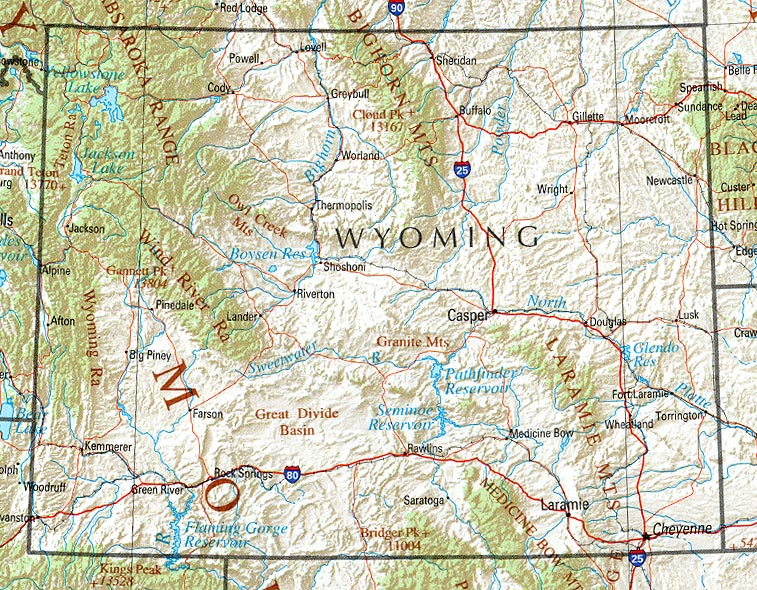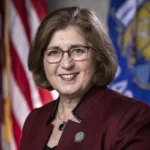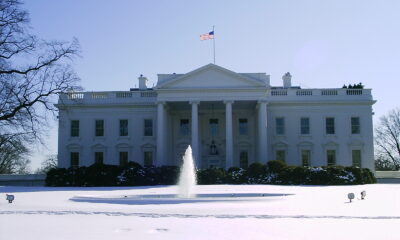Constitution
States Must Fight Out-of-State Influence in Our Elections

The unrelenting flow of money into our elections is threatening the conservative values we hold dear, among which are local control and representative self-government. There is too much political power in the hands of a few people, who are often out-of-state billionaires funneling their money through dark money special interest groups and shell corporations.
Examples of out-of-state money skewing State and local elections
This isn’t just our opinion. The system is broken, and it’s affecting all of us. In the midst of an otherwise divisive election cycle, this is an issue that unites nearly all voters, regardless of geography or political persuasion. Almost 90% of Americans believe that the influence of money in politics is a threat to our democracy.
A report from the Equality State Policy Center in Wyoming shows that the cost of the most expensive state legislature races there has risen to over $60,000 per candidate. This pales in comparison to 2010 spending, which averaged $5,047 for a statehouse seat and $7,347 for a state senate seat.
In Wisconsin, billionaires and out-of-state special interest groups poured $56 million into the state’s 2023 Supreme Court race, nearly four times the previous national record. This out-of-state influence is an affront to the American way of life.
This spending isn’t just a problem in Wyoming and Wisconsin. Nationally, it is anticipated that there will be $16 billion spent in this election cycle. An OpenSecrets analysis of campaign finance contribution records found dark money groups spent $615 million in 2022. This cycle, dark money groups and shell companies are on track to smash that amount.
Effect of such spending
Such spending has eroded the trust between voters and their elected officials. Indeed, 65% of Americans say they always or often feel exhausted when thinking about politics, while 55% feel angry, and only 16% trust the government. Too often, candidates and elected officials are viewed as being beholden to wealthy donors and dark money special interest groups – many of whom don’t even reside in the states where they’re exerting political influence – rather than the voters that put them into office.
How did we get here? Through decades of misguided precedent, the Supreme Court has effectively appointed itself as the legislative body for campaign finance reform, quashing the ability of states to control their own elections and creating a hyper-nationalized election spending arms race that would have shocked our Founding Fathers.
It’s a story of judicial overreach, beginning with the Supreme Court’s 1976 decision in Buckley v. Valeo. Buckley was the first decision to equate election spending with protected speech, and it fundamentally changed the balance of power and accountability, giving the wealthy donor class and dark money special interest groups more than their fair share of influence in elections. Citizens United v. FEC in 2010 made matters worse by expanding the definition of “person” in the context of political campaign finance law to include corporations and unions.
Amending the Constitution?
Emboldened by Supreme Court decisions, special interest groups, foreign actors, shadowy super-PACs, and profiteers are taking advantage of the dark money system by trying to maintain the status quo, skirt transparency laws, and overturn the will of the voters.
It’s no wonder that voters, Republicans and Democrats alike, list reducing the influence of money in politics as a top policy priority for 2024, just behind strengthening the economy and defending against terrorism.
Fortunately, legislators around the country are fighting back. We’re listening to our constituents and heeding their calls for change.
In Wyoming, Republican State Representative Andrew Byron supported the introduction of two committee bills focused on transparency, a burgeoning issue due to the volume of political mailers that don’t disclose who paid for them. This year, Wisconsin Republican State Representative Donna Rozar introduced a resolution urging Congress to pass an amendment to the U.S. Constitution that would restore the rights of states and Congress to set reasonable limits on campaign spending.
This is the path forward. Because of Supreme Court precedent, the only lasting solution to the corruptive influence of money in politics is through a constitutional amendment. Passing an amendment to the U.S. Constitution, such as the For Our Freedom Amendment championed by American Promise, puts the power back where it belongs: with the states. State legislatures know best how to set reasonable limits on campaign and election spending, and to stop the corruption that flows from that money.
Is that necessary?
As state legislators, we have a responsibility to our constituents to fight for what is right and to protect their interests. We urge our fellow legislators across the country to pledge support for the For Our Freedom Amendment and to introduce resolutions in their own state houses calling on Congress to adopt the amendment.
The stakes are high, and our constituents are counting on us.
This article was originally published by RealClearPolitics and made available via RealClearWire.
-

 Accountability3 days ago
Accountability3 days agoWaste of the Day: Principal Bought Lobster with School Funds
-

 Civilization21 hours ago
Civilization21 hours agoWhy Europe Shouldn’t Be Upset at Trump’s Venezuelan Actions
-

 Executive2 days ago
Executive2 days agoHow Relaxed COVID-Era Rules Fueled Minnesota’s Biggest Scam
-

 Constitution3 days ago
Constitution3 days agoTrump, Canada, and the Constitutional Problem Beneath the Bridge
-

 Christianity Today21 hours ago
Christianity Today21 hours agoSurprising Revival: Gen Z Men & Highly Educated Lead Return to Religion
-

 Civilization2 days ago
Civilization2 days agoThe End of Purple States and Competitive Districts
-

 Executive1 day ago
Executive1 day agoWaste of the Day: Can You Hear Me Now?
-

 Civilization5 days ago
Civilization5 days agoThe Conundrum of President Donald J. Trump









